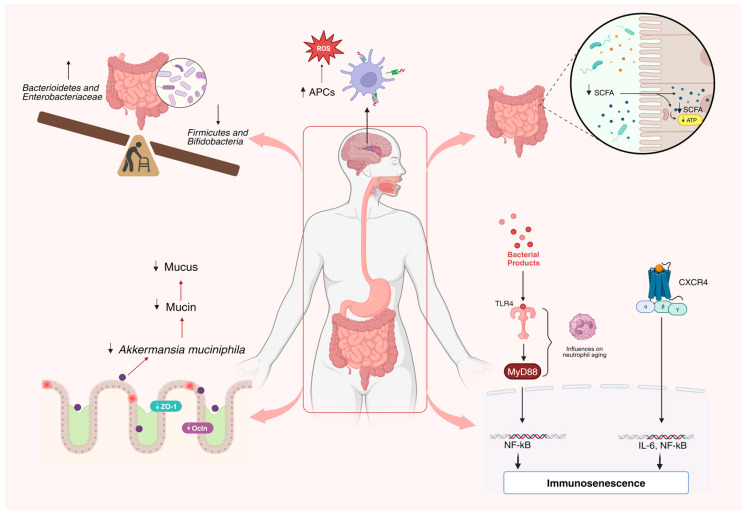Figure 1.
Impact of aging on the composition of the intestinal microbiota. Significant changes in the intestinal microbiota composition arise from various stress factors linked to aging, resulting in a dysbiotic state. This imbalance entails reduced microbial diversity, fostering an uptick in opportunistic Gram-negative bacteria while decreasing species associated with health benefits. Furthermore, these shifts disrupt innate immunity, notably increasing antigen-presenting cells in the brain. Myeloid cell buildup reduces Akkermansia muciniphila, diminishing colonic mucus and heightening IL6-mediated inflammation. Additionally, alterations in tight junction expression (Zo-1 and occludin) contribute to changes in intestinal permeability [9,12,22,23,29,30,31,47,48].

